Indonesia’s Apple and Google bans frustrate country’s tech fans

Medan, Indonesia – Winston, a medical doctor who lives and works in the capital of North Sumatra Province, is a self-proclaimed Apple fan. Currently the proud owner of an iPhone 15, Winson had been looking forward to upgrading to the latest model, the iPhone 16, released in September. Winston, however, has reluctantly given up on the idea since the Indonesian government banned sales of the iPhone 16 and the Google Pixel in late October, citing the tech giants’ failure to comply with the country’s Tingkat Komponen Dalam Negeri, or TKDN, policy, which requires phones to source at least 40 percent of their parts locally. “Indonesian regulations about iPhones hit me once, and once was enough,” Winston, who like many Indonesians goes by one name, told Al Jazeera. While Winston could buy an iPhone overseas to bring back home – a relatively common practice that is legal as long as the phone is not resold – he has been burned by Indonesian regulations before. “I bought the iPhone 11 in Singapore back in 2019 because it was much cheaper than in Indonesia, about $250 cheaper in fact. A round-trip ticket to Singapore at that time was only $120. You could fly to Singapore and back to Indonesia on the same day, so it was more cost-effective,” he said. Advertisement Winston used the phone without problems for about a year, until the Indonesian government in 2022 issued a regulation mandating that all phones be registered. Despite registering his phone as required, the device suddenly lost signal one day and would not reconnect to the network, even with a different SIM card, he said. “I went to a licensed Apple products reseller in Medan because I thought there was a problem with the phone, but they just said, ‘There is nothing we can do or suggest,’” he said. Saddled with an unusable iPhone, Winston, who has had no problems with his current iPhone 15, which he bought through a licensed reseller, sold the device at a loss at a secondhand store during a subsequent visit to Singapore. The New Pixel 9, 9 Pro and 9 Pro XL phones at Google’s Bay View campus in Mountain View, California on August 13, 2024 [Josh Edelson/AFP] Indonesia, the fourth-most populous country with some 280 million people, is one of the world’s largest smartphone markets. The archipelago was home to some 190 million smartphone users in 2022, according to market research firm Newzoo. According to data from the Ministry of Industry, the country imported about 22,000 Google Pixel phones and 9,000 iPhone 16s in 2024, before authorities announced the bans. Smartphone shipments to Indonesia were dominated by devices made by China’s Xiaomi, Oppo and Vivo, and South Korea’s Samsung. Abdul Soleh, a lawyer in Medan, said the prohibitively expensive price of the iPhone 16 for many Indonesians might explain why there had not been more vocal opposition to the ban. Advertisement “It is a real shame, because iPhones are very popular and have a high user satisfaction rate in Indonesia,” Soleh told Al Jazeera. “It would be better if the iPhone 16 could be sold in Indonesia because there are quite a lot of enthusiasts here.” Khairul Mahalli, the head of the Chamber of Commerce in North Sumatra, said that while Indonesia’s TKDN policy is aimed at supporting local industry, it could have unintended consequences. “As a member of the World Trade Organization (WTO) with a trade industry that works between countries, it is fine to protect our industries, but we also need to have checks and balances in place,” Mahalli told Al Jazeera. “One of the issues for the future could be that, if Indonesia blocks the sales of certain products, other countries could do the same and no longer accept the sales of Indonesian products on the international market.” Mahalli said it was the job of the government to find ways to minimise harm to local industries that are less drastic than outright bans on foreign products. “We don’t need to completely ban foreign sales, as Indonesia’s market is large enough to accommodate foreign products due to its large population of over 270 million people,” he said. “We need to look at whether local production can keep up with consumer demand.” Rio Priambodo, the head of the legal and complaints department at the non-profit Indonesia Consumers Organization, said consumers should think twice about purchasing the latest iPhone model, especially through illegal resellers in the country. Advertisement “The Consumers Organization recommends that consumers don’t just try to buy the iPhone 16 by any means possible if it has been banned by the government,” Priambodo told Al Jazeera. “If purchases are made illegally, this will eliminate the dimension of consumer protection that all customers should have.” In a bid to break the impasse, Apple has pledged to dramatically ramp up its investment in the country in exchange for lifting the ban. In November, the California-based tech giant offered to invest $100m in the country over two years, a 10-fold increase from an earlier pledge to pour $10m into the construction of an accessories and components factory in Bandung, West Java. Apple CEO Tim Cook, centre, walks with Indonesia’s Minister of Industry Agus Gumiwang Kartasasmita, right, and Minister of Communication and Information Technology Budi Arie Setiadi, left, after a meeting with President Joko Widodo in Jakarta, Indonesia on April 17, 2024 [Achmad Ibrahim/AP] Despite the offer, the Ministry of Industry appeared unmoved. “From the government’s perspective, of course, we want this investment to be larger,” spokesperson Febri Hendri Antoni Arif said at the time. On November 25, Jakarta formally rejected the offer, with Industry Minister Agus Gumiwang Kartasasmita saying it did not meet Indonesia’s “principles of fairness”. He said that Apple had invested more significant amounts in neighbouring countries such as Thailand and Vietnam, including $15bn for manufacturing facilities in the latter. Advertisement “Based on the technocratic assessment, the investment amount has not met the figure that we consider fair,” he said. “We want Apple to return
US prepares to deorbit International Space Station amid China competition

Before the International Space Station was launched into orbit in 1998, the U.S. signed a document with several other countries to agree to the peaceful use of the orbital laboratory. The agreement included Russia, Japan, Canada and 11 European countries. China was left out of the plan. Nearly a decade later, China expressed interest in joining those on board the space station. The European Space Agency signaled support for the addition, along with South Korea. The final decision was ultimately opposed by the United States. “I think you’ll have to understand that Congress gave us very clear direction in 2011,” NASA Deputy Administrator Pam Melroy said. “Any bilateral cooperation with China had to be certified as not sharing any information that would give China some kind of an advantage.” In 2011, Congress included in a spending bill direction to prohibit collaboration between NASA and China when it comes to some scientific research, including in space. Lawmakers argued China’s program was secretive and too closely tied to its military. NASA FINALIZES STRATEGY FOR HUMAN PRESENCE IN SPACE “I think there’s no question they’re an economic competitor and they’re also a competitor for leadership geopolitically,” Melroy said. China began developing its own space station. It launched and deorbited a pair of short-term space labs between 2011 and 2018. It launched the first part of its Tiangong Space Station, which translates to Heavenly Palace, in 2011. “We’re laser-focused on China now. China is a threat. We’re in a new space race,” said President of International and Space Stations at Voyager Space Jeffrey Manber. Voyager is one of three companies contracted by NASA that is working to develop a new space station. Voyager says it is on pace to launch its Starlab in 2028. There are some fears that NASA will face funding cuts. If there are delays for the companies designing the next space stations, NASA will deorbit the space station without a replacement ready to go. Melroy insists the agency will not let China be the sole operator of a space station in orbit, but the storyline resonates with that of the space shuttle program. The American-made space shuttle was the world’s first reusable aircraft. It launched like a rocket and landed like an airplane. In 2004, then-President George W. Bush announced a new space initiative, which included retiring the shuttle by 2010 and conducting the first manned mission on a new spacecraft no later than 2014. NASA FINALIZES STRATEGY FOR HUMAN PRESENCE IN SPACE “The Crew Exploration Vehicle will be capable of ferrying astronauts and scientists to the space station after the shuttle is retired,” Bush said in 2004. The government considered several contractors to develop the vehicle under the constellation program. Over the next several years, program delays and funding issues led the Obama administration to eliminate the program from its 2011 budget. “Pursuing this new strategy will require that we revise the old strategy. In part, this is because the old strategy, including the Constellation program, was not fulfilling its promise in many ways,” then-President Barack Obama said in April 2010. The administration instead directed more than $6 billion to support commercial companies building spacecraft. The shuttle program came to an end a year later. American-made rockets were still not yet available. The U.S. was forced to rely on Russia for continued space travel. “It was tough times. I think it was the right decision. The shuttle’s time had come to an end. We needed to make a strategic investment in our own industry to develop the capability to take humans to space,” Melroy said. “There were a lot of people who thought we’d canceled the space program.” NASA would finally launch an American-made rocket that could carry humans to the space station, nine years after the shuttle’s retirement. It was a delay of six years from Bush’s initial projection. The 2020 SpaceX launch also marked the first of a commercial rocket on U.S. soil. ELON MUSK MOVES TO MAKE STARBASE, TEXAS, THE OFFICIAL ‘GATEWAY TO MARS’ As NASA faces the same prospect once again, officials insist they have a different strategy for competition in space with China. “I think it’s different in the sense that we are still the leader. We intend to remain the leader. We intend to remain the partner of choice. We work very well with our international partners, and they want to continue to work with us,” Melroy said. Only Chinese Taikonauts have visited the Tiangong Space Station. The country has expressed openness to hosting astronauts from other countries. Beijing has increased cooperation with Sweden, Russia and Italy. In recent months, China’s first International Payload launched on a Chinese commercial rocket. It included Oman’s first satellite, which is equipped with artificial intelligence for urban planning, forestry monitoring and disaster management. If China becomes the only permanent presence in space, international partners could be forced to rely on Taikonauts for long-term needs in low Earth orbit. Commercial companies could also be forced to do the same. “We do have to be somewhat careful about technology transfer and how do we actually connect with international firms to make sure that we’re not sort of giving away things associated with it,” Arkisys CEO Dave Barnhart said. California-based Arkisys is working on a robotic servicing port for companies to use while in orbit. “We can provide either the cargo, the supplies, the robotic manipulation capability, the fuel, whatever’s required to support a servicing architecture,” Barnhart said. Barnhart added the port could help keep the U.S. competitive in space if a commercial station is not ready to go when the space station is decommissioned. While the port would be robotic and not have humans onboard, it would still give the U.S. a form of permanent presence. CLICK TO GET THE FOX NEWS APP “We actually hope that we will be a bridge between when the [space station] is decommissioned and when the new commercial space stations are up there,” Barnhart said. “We are autonomous, we can move much
Texas Supreme Court dismisses State Bar lawsuit against assistant attorney general
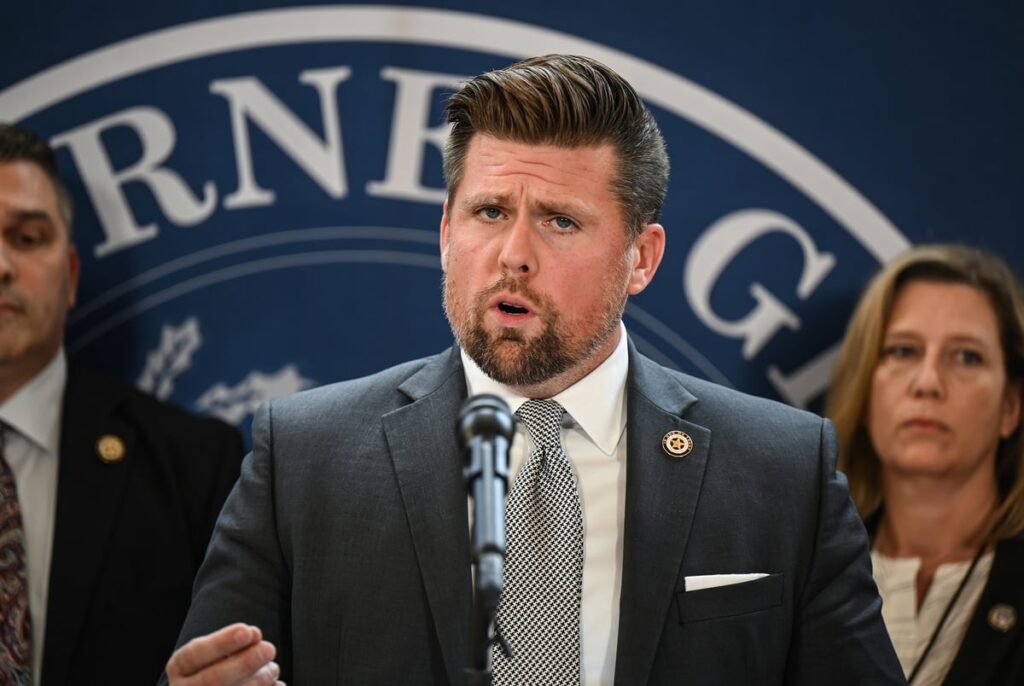
The state bar sought to take away the law license of Assistant Attorney General Brent Webster over a Texas lawsuit challenging 2020 presidential election results.
Fox News Politics Newsletter: Change of Heart Towards Trump
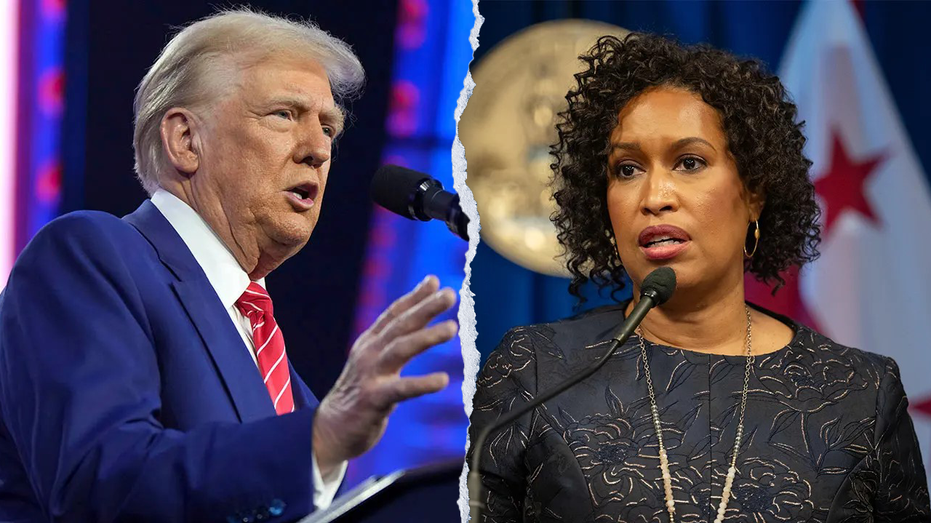
Welcome to the Fox News Politics newsletter, with the latest updates on the Trump transition, exclusive interviews and more Fox News politics content. **NOTE: The Fox News Politics Newsletter will take a break tomorrow for the New Year’s Day holiday. We will return Thursday, Jan. 2. From all of us at Fox News Politics, Happy New Year!** Here’s what’s happening… – Learning Curve: The new players in Congress – How border security dominated US politics and 2024, and sealed an election – 10 rising stars in Democratic, Republican parties expected to emerge in 2025 Washington, D.C., Mayor Muriel Bowser said Monday that she and President-elect Trump “had a great meeting to discuss our shared priorities” for his upcoming term, despite their previously contentious relationship that hit a fever pitch in 2020 during the George Floyd riots. “President Trump and I both want Washington, DC to be the best, most beautiful city in the world and we want the capital city to reflect the strength of our nation,” Bowser said. The Democratic mayor said she and Trump “discussed areas for the collaboration between local and federal government, especially around our federal workforce, underutilized federal buildings, parks and green spaces, and infrastructure.”…Read more RUBY MOUNTAINS: Biden moving to ban oil and gas leases for 20 years in Nevada region, just weeks before Trump inauguration…Read more UNDER FIRE: Dems urge Biden to extend controversial immigrant program; Trump says he’ll cut it…Read more CHILL THROUGH EU: Ukraine receives US natural gas shipment for the first time amid fresh supply fears…Read more VOTE OF CONFIDENCE: Trump gives Johnson ‘complete and total endorsement’ ahead of Speakership fight…Read more DEBT DILEMMA: Bernie Sanders plans to spearhead legislation on key Trump proposal…Read more VERDICT IS IN: North Dakota senator’s son to serve 28 years in prison for crash that killed deputy…Read more ON ICE: ICE shuts down programs offering services to illegal immigrants, citing ‘immense’ costs…Read more ‘LAWFARE…MUST END’: Georgia AG urges state Supreme Court to reject DA Willis’ appeal in Trump case…Read more PENTAGON: The Pentagon chief loses bid to reject 9/11 plea deals…Read more 9/11 PLEA DEALS STAND: Military Appeals Court rules Defense Sec Austin cannot rescind 9/11 plea deals…Read more ‘COUNTERPRODUCTIVE’: Hochul’s polluters pay bill could result in regressive costs for working families: economists…Read more Get the latest updates on the Trump presidential transition, incoming Congress, exclusive interviews and more on FoxNews.com.
Top Republican demands ‘costs’ for China after it hacked Treasury Dept in year marked by CCP espionage
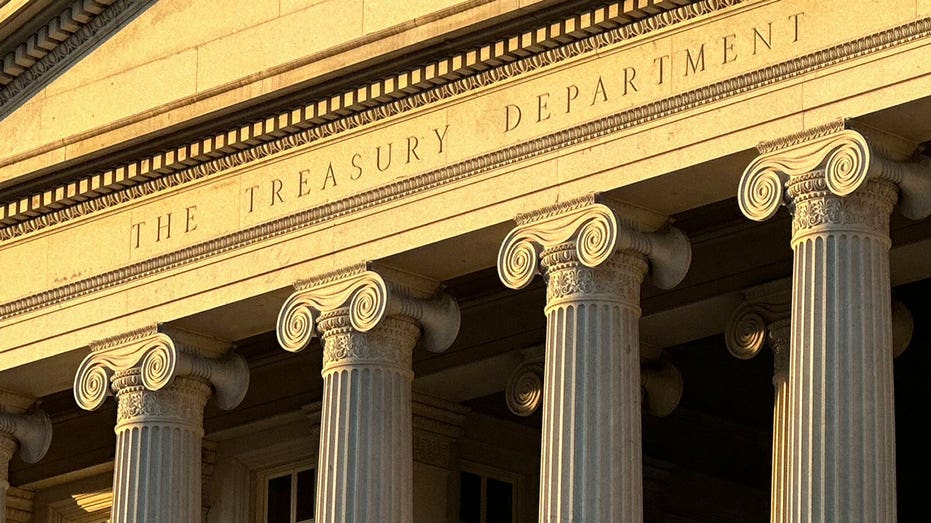
China was behind a “major” hack of the Treasury Department, the Biden administration said Monday, gaining access to unclassified documents and the workstations of government employees. After a year fraught with hacking across all government agencies, China experts say it’s time to get serious about thwarting adversarial espionage. “The latest intrusion should not come as a surprise. For too long, the CCP has paid no real price for its increasingly aggressive intrusions into our homeland and networks,” Rep. John Moolenaar, R-Mich., chairman of the House China Select Committee, told Fox News Digital. “It is time for Congress and the incoming Trump administration to impose escalating costs to deter the CCP.” It’s not yet clear what exactly the hackers were seeking. The Treasury houses sensitive data about global financial systems, as well as estimates about China’s ailing economy. It also carries out sanctions on Chinese companies, as well as those aiding Russia in the war on Ukraine. “Even though the Treasury says the Chinese only got unclassified documents, we’ve got to remember that a hack of the Treasury sends shudders not just across the U.S., but across the world. Countries rely on the dollar, can you rely on the stability of the American financial markets?” said China expert Gordon Chang. CHINA DIRECTS LARGEST MILITARY BUILD-UP SINCE 1930S NAZI GERMANY, EXPERT WARNS, CITING PENTAGON REPORT Treasury was notified by a service provider of the breach on Dec. 8, and all systems affected were taken offline. China called the accusation that it was behind the act “baseless” and said it “consistently opposes all forms of hacking.” Despite China’s denial, the Treasury insisted a Chinese state-sponsored actor was behind the attack. Chang suggested Xi may have intended to get caught to send a message to the world. “We can’t actually exclude the possibility that the Chinese wanted to be caught because they wanted to actually create uncertainty around the world. They wanted to show the world that the United States is not safe — their networks are not good, the Chinese control them at will.” STATE ATTORNEYS GENERAL ASK SCOTUS TO UPHOLD TIKTOK DIVEST-OR-BAN LAW AMID TRUMP REQUEST TO PAUSE BAN Just weeks ago, President-elect Donald Trump seemed to be making an attempt to smooth over relations with China with an invitation to President Xi Jinping for his inauguration. But the recent hacking attempt suggests such efforts might be futile, according to Chang. “American presidents had tried preemptive concessions to China for decades. They’ve not resulted in benefits to us. And the reason is because the Chinese don’t reciprocate them,” he said. Earlier this year, Commerce Secretary Gina Raimondo’s communications were intercepted by Chinese intelligence, just as she was making determinations about new export controls on semiconductors and other key technology. The same hacking group also targeted officials at the State Department and members of Congress. And the Treasury hack comes just as the Biden administration is grappling with one of China’s biggest attacks on American infrastructure in history, dubbed Salt Typhoon. A Chinese intelligence group infiltrated nine U.S. telecommunications giants and gained access to the private text messages and phone calls of Americans, including senior government officials and prominent political figures. The Salt Typhoon hackers also gained access to an exhaustive list of phone numbers the Justice Department had wiretapped to monitor people suspected of espionage, granting them insight into which Chinese spies the U.S. had caught onto and which they had missed. The onslaught of cyberattacks has prompted frustration — and raised questions — about cybersecurity and why America’s adversaries are able to penetrate U.S. government systems with regularity. “The American people should be angry at the Chinese for hacking us, but they should be outraged at our political leaders because our political leaders know what’s going on. They have the means to protect us, and they have decided not to do so,” said Chang. Last week, incoming national security adviser Rep. Mike Waltz, R-Fla., suggested the U.S. needed to not only play defense but go on offense to the attacks. “We have to stop trying to just play better and better defense,” he told Fox Business’ Maria Bartiromo. “We need to start going on offense.” “We need to start imposing consequences for those that are stealing our technology, spying on us, and now with a program called Volt Typhoon, is putting cyber time bombs on our critical infrastructure, like our water, our grid and our ports,” Waltz said. “America can’t afford to just play defense on cyber anymore. We’ve got to go on the offensive and impose COSTS on those who are stealing our technology and attacking our infrastructure,” he added on X. Trump has proposed a 60% tariff on U.S. imports from China. Last month, the Biden administration issued its most stringent crackdown yet on China’s semiconductor industry with the intent of hindering its ability to develop AI for modern military uses.
Dems urge Biden to extend controversial immigrant program; Trump says he’ll cut it
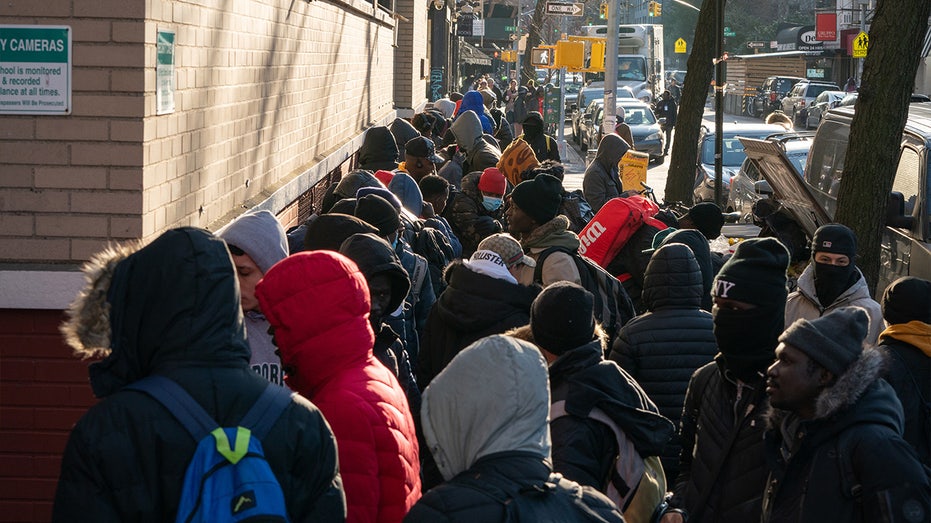
A controversial immigration program that has been in place for decades has recently become a hot-button issue as it looks likely to be axed or severely limited by the incoming Trump administration, and Democrats are calling on President Biden to take moves to preserve it. Temporary Protected Status is a program established in the 1990s that allows the government to designate countries unsafe for nationals to return to, granting nationals already in the U.S. work permits and protection from deportation if they are here illegally or if their legal status expires. The Biden administration designated or re-designated a number of countries for TPS, including Venezuela, Haiti, Afghanistan and others, allowing hundreds of thousands of nationals to remain in the U.S. as a result. There are currently 17 countries designated for TPS. ‘LEGAL AUTHORITY’: SENATE DEMS DEMAND BIDEN EXTEND PROTECTIONS FOR ILLEGAL IMMIGRANTS AHEAD OF TRUMP ADMIN The first Trump administration sought to wind down TPS for a number of countries, but it was caught up in a yearslong court battle launched by left-wing civil rights groups on the matter. TPS again became a major issue in 2024 as Republicans and conservatives drew attention to mass migration via humanitarian parole from Haiti. Migrants were coming in via the use of the CBP One app and a program that allowed up to 30,000 migrants from four countries a month into the U.S. They could then be eligible for TPS if they arrived before the country was re-designated. There were widespread reports of Haitian migrants flooding towns in Ohio and elsewhere, which were picked up by former President Trump and his running mate, Sen. JD Vance of Ohio. Trump promised to revoke TPS for Haiti earlier this year. “It’s been overrun. You can’t do that to people. I’d revoke [TPS], and I’d bring [the migrants] back to their country,” he told NewsNation when speaking about Springfield, Ohio. Vance described TPS as a “government edict saying that you’re not allowed to deport people anymore.” Conservatives have long complained that continued extensions of TPS mean it is not “temporary” as it claims to be. DEM SENATOR URGES BIDEN TO EXTEND PROTECTIONS FOR ILLEGAL IMMIGRANTS BEFORE TRUMP ADMIN: ‘NOBODY IS SAFE’ Republicans have made moves to restrict the program in Congress. Sen.-elect Jim Banks, R-Ind., introduced a bill that restricts TPS designations by requiring Congress to approve them for 12-month terms and requiring additional moves by Congress to extend them. Trump has promised to launch a mass deportation operation, and restrictions on TPS and other immigration benefits are expected to accompany that. CLICK HERE FOR MORE COVERAGE OF THE BORDER SECURITY CRISIS With that looming, Democrats have been urging Biden to extend protections under TPS and other programs to blunt the impact of the incoming administration. “We write now because the window to secure and finalize your administration’s policies is closing rapidly,” Democrats led by Sen. Dick Durbin, D-Ill., told Biden in a letter this month. “We urge you to act decisively between now and the inauguration of the President-elect to complete the important work of the past four years and protect immigrant families.” So far, however, there’s been no movement on TPS by the Biden administration nor any indication that redesignations or extensions are imminent.
Military Appeals Court rules Defense Sec Austin cannot rescind 9/11 plea deals

A military appeals court ruled on Tuesday that Defense Secretary Lloyd Austin cannot rescind the plea deals of detainees at Guantanamo Bay including alleged 9/11 architect Khalid Sheikh Mohammad, Fox News has learned. The court opinion, which has not been formally published yet, said the plea deals reached by military prosecutors and defense attorneys were valid and enforceable, and that Austin exceeded his authority when he later tried to nullify them. The Pentagon has the option of going next to the D.C. Circuit federal appeals court for emergency review, but the court docket did not show any filings as of Tuesday afternoon. JUDGE RESTORES CONTROVERSIAL 9/11 TERRORIST PLEA DEALS INVOLVING KHALID SHEIKH MOHAMMED: REPORT A hearing is scheduled next week at Guantanamo Bay, Cuba, where Mohammad and two other defendants could plead guilty in separate hearings, with the death penalty removed as a possible punishment. The plea deals in the long-running case against the terrorists were struck over the summer and approved by the top official of the Gitmo military commission. LAWMAKERS, FAMILIES OF 9/11 VICTIMS REACT TO PLEA DEAL WITH TERRORISTS: ‘SLAP IN THE FACE’ The plea deals have been condemned by a number of 9/11 victims and U.S. politicians. “Joe Biden, Kamala Harris have weaponized the Department of Justice to go after their political opponents, but they’re cutting a sweetheart deal with 9/11 terrorists,” now Vice President-elect JD Vance said at the time. The Pentagon revoked the deals in July. “Effective immediately, in the exercise of my authority, I hereby withdraw from the three pretrial agreements that you signed on July 31, 2024,” a letter from Austin states. This is a developing news story. Please check back for updates. Fox News’ Andrea Margolis contributed to this report.
Noida Police to offer cabs for drunk partygoers on New Year’s Eve; check details

The initiative aims to reduce the risks associated with drunk driving and ensure a trouble-free celebration for the public.
Delhi recorded 209 ‘good to moderate’ AQI in 2024, best since 2018

Delhi recorded 209 ‘good to moderate’ air quality days in 2024, the highest since 2018. The city had 157 ‘poor to severe’ days this year, the lowest since 2018 when the number stood at 206.
Ukraine receives US natural gas shipment for the 1st time amid fresh supply fears
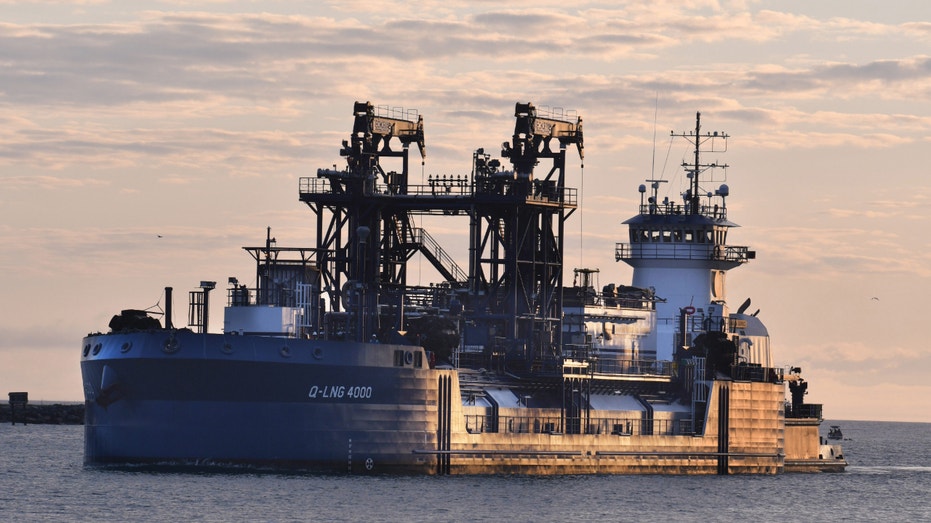
Ukraine has received its first shipment of liquefied natural gas (LNG) from the U.S., energy company officials confirmed this week— a positive development for Kyiv as it moves to ramp up its purchases of U.S. supplies and protect against broader supply concerns in the region. Ukraine’s private energy company, DTEK, confirmed it has received some 100 million cubic meters of U.S. LNG in the shipment, which the U.S. shipped to an LNG regasification terminal in Greece. BIDEN’S DEFENSE DEPARTMENT ANNOUNCES NEW MULTIBILLION-DOLLAR AID PACKAGES FOR UKRAINE The news comes after Ukraine’s DTEK inked a supply deal with U.S.-based LNG supplier Venture Global in June. The DTEK contract is the first significant LNG contract to be struck between Ukraine and the U.S. and will allow Ukraine to purchase an “unspecificed” amount of LNG from Venture Global through 2026. The companies also signed a separate 20-year agreement, in keeping with traditional longer-term LNG supply contracts. The news comes just hours before Russian gas giant, Gazprom, is slated to halt all piped gas deliveries shipped through Ukrainian pipelines to other European countries, following the expiration of its five-year contract. GERMANY ACCUSES ELON MUSK OF TRYING TO INTERFERE IN ITS NATIONAL ELECTIONS Ukraine itself does not purchase Russian gas supplies. However, the European Union (EU) remains heavily dependent on imported gas, including from Russia. Even after the abrupt throttling of the Nord Stream 1 gas pipeline, the EU depends on piped Russian gas for roughly 5% of its total gas imports— sparking fresh fears as to how the bloc might cope in the event of a supply emergency or colder-than-expected winter. In the interim, Ukrainian officials said, they hope the additional U.S. supplies can help fill in the gap and help ease any near-term supply crises in the EU. “Cargoes like this are not only providing the region with a flexible and secure source of power, but are further eroding Russia’s influence over our energy system,” DTEK CEO Maxim Timchenko said in a statement.

